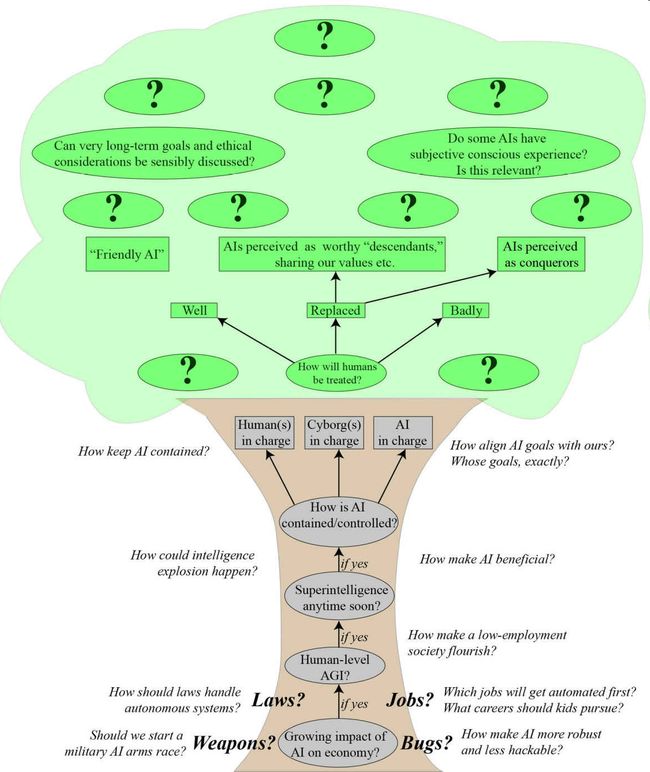- 【useEffect Hook】在组件中执行副作用操作
风茫
Reactreact.jsuseEffect
引言useEffect是React中用于处理副作用的Hook,它允许你在函数组件中执行类似于类组件生命周期方法的操作。通过useEffect,你可以在组件挂载、更新和卸载时执行某些操作。常见副作用操作:AJAX请求:获取或提交数据。计时器:设置定时任务。异步操作:处理异步逻辑。更改真实的DOM对象:直接操作DOM元素。本地存储:读取或写入浏览器的本地存储。其它会对外部产生影响的操作:例如订阅事件等
- 深入MapReduce——MRv1设计
黄雪超
大数据基础#深入MapReducemapreduce大数据
引入通过前面篇章,我们对于MapReduce已经有了不错的了解,由于现在几乎没有使用MapReduce去开发业务需求的场景,甚至MapReduce这个引擎都随着时代变化,快要完全被淘汰了,所以我们就不去水看使用MapReduce编程相关的东西,而是把重点放到一些我们比较感兴趣的点上。今天我们先来看看MRv1计算框架的核心设计实现。MRJob生命周期首先,我们梳理MRJob的生命周期流程如下:Job
- YOLOv10-1.1部分代码阅读笔记-model.py
红色的山茶花
YOLO笔记深度学习
model.pyultralytics\models\yolo\model.py目录model.py1.所需的库和模块2.classYOLO(Model):3.classYOLOWorld(Model):1.所需的库和模块#UltralyticsYOLO,AGPL-3.0licensefrompathlibimportPathfromultralytics.engine.modelimportMo
- 基于数智立体化V2.0体系构建医疗综合智能体:理论、实践与展望
Allen_LVyingbo
医疗高效编程研发python健康医疗知识图谱python
一、引言1.1研究背景与意义医疗行业作为关乎人类生命健康与社会福祉的重要领域,始终处于不断发展与变革的进程之中。在当下,随着全球人口老龄化趋势的加剧,慢性疾病的发病率持续攀升,人们对医疗服务的需求呈现出快速增长且日益多样化的态势。与此同时,传统医疗模式在应对这些挑战时,逐渐暴露出诸多问题,如医疗资源分布不均衡,偏远地区和基层医疗机构面临着医疗技术匮乏、设备陈旧等困境;医疗服务效率低下,患者就医等待
- Liferay 前世今生
leisurelyZ
LiferayPortal开源项目javapaas低代码
从今天开始,我会开辟一个新的专栏,主攻Liferay这个开源框架。Liferay是一款基于Java技术栈的开源企业级门户解决方案,它被广泛应用于构建企业门户、内容管理系统、协作平台、社交网络、以及其他多种Web应用。Liferay提供了一个统一的平台,可以整合企业内部的各种应用、数据和内容,帮助组织提升运营效率、增强团队协作和改善客户体验。本文将详细介绍Liferay的基本概念、用途、官方资源、以
- STM32+CubeMX -- 开发辅助工具
【 STM32开发 】
stm32嵌入式硬件单片机
下面是开发时,每天高频用到的几款工具:一、串口助手单片机在调试程序时,用得最多的调试方式,并非是进入debug模式,而是:观察LED的不同设定状态,如:亮、灭、常亮、快闪、慢闪等;使用UART,经USB转TTL,把数据输出到串口助手观察,比进入debug观察数据更清晰、直观。网盘文件夹中提供了几款串口助手,直接复制到桌面上,即可使用。也可以从这里下载:链接:串口助手集合:XCOM-v3.0、SSC
- 3.2 Go 返回值详解
行路见知
Golanggolang开发语言
在Go语言中,函数调用完成后会产生一个返回值,该值的类型和数量取决于函数定义。返回值在函数调用结束时通过return语句返回,具体规则如下:一.返回值的基本规则1.返回值类型:返回值必须有类型,类型可以是内置类型(如int、string)或自定义类型。返回值本质上是函数中的局部变量,生命周期在函数执行结束后结束。2.无返回值:函数可以没有返回值,此时return语句可选。示例:funcprintM
- 故乡的路
魂玉天成
诗歌生活
多想挽着你的手在田埂上欣然散步披着冬天的晚霞映照着光辉我们悠闲地聊着脚下的土地和山林那是你的骄傲那一刻,我知道你像热爱生命一样热爱着它们因为它们哺育着我们哺育着这一双双儿女当我再一次踏入故土那片山林还在曾就走过的路还在但你已是路边的一个土丘那是的你的归宿你,默默守护着曾经栽种的树木在深夜的乡村小路肃静与安详悠悠、悠悠的蟋蟀的叫声如美妙的歌声带入凉凉的睡意轻轻、轻轻地那么柔软如蚕丝一般丝滑不敢喘息也
- 融云IM干货丨uni-app 生命周期有哪些?
融云即时通讯imuni-app
uni-app的生命周期分为应用生命周期、页面生命周期和组件生命周期三类:应用生命周期应用生命周期函数需要在App.vue中声明,主要包含以下函数:onLaunch:当uni-app初始化完成时触发(全局只触发一次)。onShow:当uni-app启动,或从后台进入前台显示时触发。onHide:当uni-app从前台进入后台时触发。onError:当uni-app报错时触发。onPageNotFo
- C++经典面试题(适合收藏)
摇光~
面试c++javajvm面试
当然,以下是一份包含20道C++面试题及其详细解答的列表:1.什么是C++中的构造函数和析构函数?构造函数:在创建对象时自动调用的函数,用于初始化对象。它可以有参数,也可以没有参数。析构函数:在对象生命周期结束时自动调用的函数,用于释放对象所占用的资源。析构函数没有返回值,也不接受任何参数。2.C++中的多态是如何实现的?C++中的多态是通过继承和虚函数来实现的。当基类中的函数被声明为虚函数时,派
- 一文吃透dotnet命令,开启高效开发之旅
步、步、为营
c#.netcoreasp.net微服务
一、引言在.NET开发的广袤天地中,dotnet命令宛如一把瑞士军刀,是开发者们不可或缺的得力工具。无论是初出茅庐的编程新手,还是经验丰富的技术专家,dotnet命令都在项目的全生命周期中扮演着举足轻重的角色。从项目的初始化创建,到构建、测试、部署,每一个关键环节都离不开dotnet命令的支持。它就像是连接开发者与代码世界的桥梁,使得复杂的开发流程变得高效而流畅。想象一下,当你接到一个新的.NET
- 基于机器视觉的钢管表面缺陷检测方法
winxp-pic
计算机视觉
钢管作为原材料,广泛应用于如石油、化工、电力、船舶、汽车等行业。近年来,经济全球化发展使企业对产品质量提出更高要求,钢管表面存在缺陷会严重影响其使用寿命,同时在设备某些重要位,使用劣质钢管会存在安全隐患,严重威胁人员生命,对企业造成产财产损失。因此,为了控制钢管质量,相关企业会对其进行质量检测,但检测措施通常由人工实现,无法实现快速、精准检测缺陷。在钢管生产的过程中,由于原材料、轧制设备和加工工艺
- android服务的启动过程,Android Service启动流程
weixin_39968640
android服务的启动过程
一、Service生命周期首先我们先回忆一下Service的声明周期image第一次调用startServie():Service.onCreate()->Service.onStartCommand()第二次调用startService():Service.onStartCommand()本周主要分析上面两步操作,Service的启动行为。二、Service启动分析image阶段一:app进程s
- swiper移入暂停_用Swiper插件实现无缝轮播的品牌展示,鼠标移动停止,鼠标移出无缝移动视觉效果...
weixin_39726971
swiper移入暂停
正常操作,正常分析,大家好,我是D1n910。文章关键词:技术前端JQuery入门滚动文章前言:公司要求做官网呀呀呀,其中有一部分设计是要求我们最亲爱的品牌商的LOGO能够在底部无缝轮播,鼠标移上去就停下来。效果如下:一、使用插件介绍1、使用的框架是JQuery,因为讲究快速、兼容、展示,所以没有用vue、react之类的看起来高大上的框架。2、使用的是优秀的轮播插件Swiper3.0版(实际上S
- 深入剖析Tomcat整体架构
一休哥助手
java架构工具tomcat架构java
目录Tomcat简介Tomcat架构概述核心组件详解ServerServiceConnectorEngineHostContextWrapper生命周期与初始化
- Alibaba Spring Cloud 三 Seata 的三大核心组件:TC,TM,RM
空灵宫(Ethereal Palace)
AlibabaSpringCloudspringcloud架构spring
Seata的架构由三大核心组件构成:TransactionCoordinator(TC)、TransactionManager(TM)和ResourceManager(RM)。它们协同工作,用于管理分布式事务的生命周期,确保全局数据一致性。以下是对这三个组件的详细解析及其作用:1.Seata的三大核心组件1.1TransactionCoordinator(TC)事务协调者作用:负责管理全局事务的生
- 基于遗传算法的城市旅行问题(TSP)求解
NovakG_
深度学习python算法深度学习神经网络
1.遗传算法背景介绍遗传算法是一种基于生物进化论中的自然选择和遗传机制的优化算法,模拟了生物进化过程以搜索最优解。通过仿真染色体的交叉、变异等操作,遗传算法将求解过程转换为类似生物进化的迭代运算。该算法在解决复杂的组合优化问题时,通常比常规优化算法更高效,且具有广泛应用,包括组合优化、机器学习、信号处理、自适应控制和人工生命等领域2.遗传算法基本解题思路遗传算法的设计思路主要受到大自然中生物体进化
- Spring Boot中使用MapStruct进行对象映射
后端springboot
SpringBoot中使用MapStruct进行对象映射大家好,我是免费搭建查券返利机器人省钱赚佣金就用微赚淘客系统3.0的小编,也是冬天不穿秋裤,天冷也要风度的程序猿!在现代的Java应用开发中,对象之间的转换是一个常见但不可避免的任务。MapStruct作为一个强大的对象映射框架,可以帮助开发者轻松地进行复杂对象之间的映射转换。本文将深入探讨如何在SpringBoot项目中使用MapStruc
- Vue.js 深度剖析:2024 前端高频面试题详解
跟着小郑学前端
前端vue.jsjavascript
Vue.js深度剖析:2024前端高频面试题详解1.Vue的响应式原理是什么?2.Vue组件通信方式有哪些?3.Vue的生命周期是什么?4.如何优化Vue应用性能?5.什么是Vue的CompositionAPI?6.什么是Vue的VirtualDOM?7.Vuex与Pinia的区别是什么?1.Vue的响应式原理是什么?答:Vue的响应式系统基于数据劫持和发布-订阅模式。数据劫持:Vue2使用Obj
- Vue-Router路由动态缓存组件(keep-alive),vue2/vue3不同写法
码喽的自我修养
vue2/3从基础到起飞vue.js前端javascript缓存vue前端框架AI编程
个人简介:某大型国企资深软件开发工程师,信息系统项目管理师、CSDN优质创作者、阿里云专家博主、华为云云享专家,分享前端后端相关技术与工作常见问题~作者:码喽的自我修养❣️专栏:vue2/3从基础到起飞若有帮助,还请关注➕点赞➕收藏,不行的话我再努努力文章目录一、简介它的主要作用是缓存不活动的组件实例,而不是销毁它们。基本用法生命周期钩子二、定义是否缓存组件三、缓存组件相关配置1.通过:inclu
- 什么是IPD流程
伯牙碎琴
IPD制造
IPD(IntegratedProductDevelopment)是一种先进的产品研发流程。在IPD流程中,产品研发一般包括以下六个阶段:概念阶段、计划阶段、开发阶段、验证阶段、生产阶段、品类阶段。其中产品开发流程分为6个阶段、4个决策评审点、6个技术评审点,各个阶段分别是概念、计划、开发、验证、发布和生命周期。一、IPD的概述IPD,IntegratedProductDevelopment三个英
- 为移动硬盘/硬盘盒安装linux
翻滚吧键盘
linuxubuntu运维
我安装的是popos,系统自带中文输入法,强推!步骤如下:把虚拟机的硬盘移除切换usb设备兼容性为{3.0/3.1}指定cd/dvd为要安装的iso镜像文件。进入后正常安装流程,会安装到硬盘盒里
- CBK-D1-安全与风险管理-思维导图.md
青葱味奶糖
CISSP安全思维导图cissposg安全与风险管理
CBK-D1-安全与风险管理osg-ch2-人员安全和风险管理的概念人员安全人员经常被视为最脆弱的元素招聘新员工的步骤创建岗位描述岗位描述并非专用于招聘过程,在组织的整个生命周期中进行维护设置工作级别筛选应聘者候选人筛选背景调查#######工作和教育背景#######检查推荐信#######验证学历#######访谈同事#######个人面试#######信用核查#######性格测试和评估##
- 什么是僵尸进程
C嘎嘎嵌入式开发
C++服务器数据库c++
什么是僵尸进程1.僵尸进程的定义僵尸进程是指那些已经终止执行(即已经调用了exit()或者完成了main()函数),但其父进程尚未通过wait()或waitpid()系统调用获取其退出状态的进程。在进程的生命周期中,当一个子进程结束时,它会将其退出状态信息(包括退出码、资源使用情况等)发送给其父进程。如果父进程没有及时读取这些信息,子进程就会变成僵尸状态。2.僵尸进程的生命周期创建阶段:父进程通过
- 四、【Vue3】——setup不得不说的两个注意点
YIFEI132
Vue3vue.jsjavascript前端
在Vue3中setup被称为组合式API表演的舞台,可见其重要性与地位,在小编第一篇中浅谈过setup的使用,这节可以进阶学习一下setup中两个注意点:执行时机以及其参数。一、拉开序幕的setup理解:Vue3.0中一个新的配置项,值为一个函数。setup是所有CompositionAPI(组合API)“表演的舞台”。组件中所用到的:数据、方法等等,均要配置在setup中。setup函数的两种返
- 深入解析Spring AI框架:在Java应用中实现智能化交互的关键
鵝鵝鵝
javaspring数据库后端开发语言
合集-Spring源码分析(22)1.Spring入门系列:浅析知识点2023-04-102.Spring源码系列:初探底层,手写Spring2023-04-123.Spring源码系列:核心概念解析2023-04-204.Spring源码系列(补充):详解ApplicationContext2023-04-215.Spring源码:bean的生命周期(一)2023-05-016.Spring源码
- Kafka 入门与应用实战:吞吐量优化与与 RabbitMQ、RocketMQ 的对比
小白的一叶扁舟
Java开发kafkarabbitmqrocketmqspringbootjava
前言在现代微服务架构和分布式系统中,消息队列作为解耦组件,承担着重要的职责。它不仅提供了异步处理的能力,还能确保系统的高可用性、容错性和扩展性。常见的消息队列包括Kafka、RabbitMQ和RocketMQ,其中Kafka因其高吞吐量、分布式特性和可靠性成为大规模数据流处理的首选。本篇文章将深入介绍Kafka的基本概念、执行流程、吞吐量优化策略、生命周期,重点对比Kafka与RabbitMQ和R
- Docker 和 Kubernetes
小馋喵知识杂货铺
性能dockerkubernetes容器
Docker和Kubernetes(K8s)是当前最流行的容器化技术,用于开发、部署和管理应用程序。它们通常一起使用,提供从开发到生产的完整生命周期管理,特别是在微服务架构和云原生应用的开发中。1.Docker简介Docker是一个开源的容器化平台,它可以将应用及其所有依赖项打包在一个统一的容器中,从而简化了软件的开发、部署、运行和管理。容器化应用具有跨平台、一致性强、启动速度快等特点。容器:一个
- 【原创】大数据治理入门(5)《数据生命周期管理:从采集到归档》入门必看 高赞实用
精通代码大仙
数据库hadooppython大数据数据挖掘数据治理数据库python
数据生命周期管理:从采集到归档引言:数据生命周期的概念数据生命周期管理(DataLifecycleManagement,DLM)是指从数据的创建、使用、存储到最终归档或销毁的全过程管理。在大数据时代,企业需要通过对数据生命周期的全面管理,确保数据的可用性、安全性和合规性。本文将详细介绍数据生命周期的各个阶段,以及相应的管理策略和技术工具。各阶段介绍:采集、存储、处理、分析、归档数据采集(DataC
- React的类组件和函数组件
读心悦
深入浅出reactreact.jsjavascript前端
文章目录类组件函数组件函数组件核心的API类组件类组件就是基于ES6Class的语法,通过继承React.Component得到的React组件,React类组件是有自己的生命周期的,在不同的生命周期里执行不同的逻辑。比如:importReactfrom"react";classCommextendsReact.Component{constructor(prop
- web报表工具FineReport常见的数据集报错错误代码和解释
老A不折腾
web报表finereport代码可视化工具
在使用finereport制作报表,若预览发生错误,很多朋友便手忙脚乱不知所措了,其实没什么,只要看懂报错代码和含义,可以很快的排除错误,这里我就分享一下finereport的数据集报错错误代码和解释,如果有说的不准确的地方,也请各位小伙伴纠正一下。
NS-war-remote=错误代码\:1117 压缩部署不支持远程设计
NS_LayerReport_MultiDs=错误代码
- Java的WeakReference与WeakHashMap
bylijinnan
java弱引用
首先看看 WeakReference
wiki 上 Weak reference 的一个例子:
public class ReferenceTest {
public static void main(String[] args) throws InterruptedException {
WeakReference r = new Wea
- Linux——(hostname)主机名与ip的映射
eksliang
linuxhostname
一、 什么是主机名
无论在局域网还是INTERNET上,每台主机都有一个IP地址,是为了区分此台主机和彼台主机,也就是说IP地址就是主机的门牌号。但IP地址不方便记忆,所以又有了域名。域名只是在公网(INtERNET)中存在,每个域名都对应一个IP地址,但一个IP地址可有对应多个域名。域名类型 linuxsir.org 这样的;
主机名是用于什么的呢?
答:在一个局域网中,每台机器都有一个主
- oracle 常用技巧
18289753290
oracle常用技巧 ①复制表结构和数据 create table temp_clientloginUser as select distinct userid from tbusrtloginlog ②仅复制数据 如果表结构一样 insert into mytable select * &nb
- 使用c3p0数据库连接池时出现com.mchange.v2.resourcepool.TimeoutException
酷的飞上天空
exception
有一个线上环境使用的是c3p0数据库,为外部提供接口服务。最近访问压力增大后台tomcat的日志里面频繁出现
com.mchange.v2.resourcepool.TimeoutException: A client timed out while waiting to acquire a resource from com.mchange.v2.resourcepool.BasicResou
- IT系统分析师如何学习大数据
蓝儿唯美
大数据
我是一名从事大数据项目的IT系统分析师。在深入这个项目前需要了解些什么呢?学习大数据的最佳方法就是先从了解信息系统是如何工作着手,尤其是数据库和基础设施。同样在开始前还需要了解大数据工具,如Cloudera、Hadoop、Spark、Hive、Pig、Flume、Sqoop与Mesos。系 统分析师需要明白如何组织、管理和保护数据。在市面上有几十款数据管理产品可以用于管理数据。你的大数据数据库可能
- spring学习——简介
a-john
spring
Spring是一个开源框架,是为了解决企业应用开发的复杂性而创建的。Spring使用基本的JavaBean来完成以前只能由EJB完成的事情。然而Spring的用途不仅限于服务器端的开发,从简单性,可测试性和松耦合的角度而言,任何Java应用都可以从Spring中受益。其主要特征是依赖注入、AOP、持久化、事务、SpringMVC以及Acegi Security
为了降低Java开发的复杂性,
- 自定义颜色的xml文件
aijuans
xml
<?xml version="1.0" encoding="utf-8"?> <resources> <color name="white">#FFFFFF</color> <color name="black">#000000</color> &
- 运营到底是做什么的?
aoyouzi
运营到底是做什么的?
文章来源:夏叔叔(微信号:woshixiashushu),欢迎大家关注!很久没有动笔写点东西,近些日子,由于爱狗团产品上线,不断面试,经常会被问道一个问题。问:爱狗团的运营主要做什么?答:带着用户一起嗨。为什么是带着用户玩起来呢?究竟什么是运营?运营到底是做什么的?那么,我们先来回答一个更简单的问题——互联网公司对运营考核什么?以爱狗团为例,绝大部分的移动互联网公司,对运营部门的考核分为三块——用
- js面向对象类和对象
百合不是茶
js面向对象函数创建类和对象
接触js已经有几个月了,但是对js的面向对象的一些概念根本就是模糊的,js是一种面向对象的语言 但又不像java一样有class,js不是严格的面向对象语言 ,js在java web开发的地位和java不相上下 ,其中web的数据的反馈现在主流的使用json,json的语法和js的类和属性的创建相似
下面介绍一些js的类和对象的创建的技术
一:类和对
- web.xml之资源管理对象配置 resource-env-ref
bijian1013
javaweb.xmlservlet
resource-env-ref元素来指定对管理对象的servlet引用的声明,该对象与servlet环境中的资源相关联
<resource-env-ref>
<resource-env-ref-name>资源名</resource-env-ref-name>
<resource-env-ref-type>查找资源时返回的资源类
- Create a composite component with a custom namespace
sunjing
https://weblogs.java.net/blog/mriem/archive/2013/11/22/jsf-tip-45-create-composite-component-custom-namespace
When you developed a composite component the namespace you would be seeing would
- 【MongoDB学习笔记十二】Mongo副本集服务器角色之Arbiter
bit1129
mongodb
一、复本集为什么要加入Arbiter这个角色 回答这个问题,要从复本集的存活条件和Aribter服务器的特性两方面来说。 什么是Artiber? An arbiter does
not have a copy of data set and
cannot become a primary. Replica sets may have arbiters to add a
- Javascript开发笔记
白糖_
JavaScript
获取iframe内的元素
通常我们使用window.frames["frameId"].document.getElementById("divId").innerHTML这样的形式来获取iframe内的元素,这种写法在IE、safari、chrome下都是通过的,唯独在fireforx下不通过。其实jquery的contents方法提供了对if
- Web浏览器Chrome打开一段时间后,运行alert无效
bozch
Webchormealert无效
今天在开发的时候,突然间发现alert在chrome浏览器就没法弹出了,很是怪异。
试了试其他浏览器,发现都是没有问题的。
开始想以为是chorme浏览器有啥机制导致的,就开始尝试各种代码让alert出来。尝试结果是仍然没有显示出来。
这样开发的结果,如果客户在使用的时候没有提示,那会带来致命的体验。哎,没啥办法了 就关闭浏览器重启。
结果就好了,这也太怪异了。难道是cho
- 编程之美-高效地安排会议 图着色问题 贪心算法
bylijinnan
编程之美
import java.util.ArrayList;
import java.util.Collections;
import java.util.List;
import java.util.Random;
public class GraphColoringProblem {
/**编程之美 高效地安排会议 图着色问题 贪心算法
* 假设要用很多个教室对一组
- 机器学习相关概念和开发工具
chenbowen00
算法matlab机器学习
基本概念:
机器学习(Machine Learning, ML)是一门多领域交叉学科,涉及概率论、统计学、逼近论、凸分析、算法复杂度理论等多门学科。专门研究计算机怎样模拟或实现人类的学习行为,以获取新的知识或技能,重新组织已有的知识结构使之不断改善自身的性能。
它是人工智能的核心,是使计算机具有智能的根本途径,其应用遍及人工智能的各个领域,它主要使用归纳、综合而不是演绎。
开发工具
M
- [宇宙经济学]关于在太空建立永久定居点的可能性
comsci
经济
大家都知道,地球上的房地产都比较昂贵,而且土地证经常会因为新的政府的意志而变幻文本格式........
所以,在地球议会尚不具有在太空行使法律和权力的力量之前,我们外太阳系统的友好联盟可以考虑在地月系的某些引力平衡点上面,修建规模较大的定居点
- oracle 11g database control 证书错误
daizj
oracle证书错误oracle 11G 安装
oracle 11g database control 证书错误
win7 安装完oracle11后打开 Database control 后,会打开em管理页面,提示证书错误,点“继续浏览此网站”,还是会继续停留在证书错误页面
解决办法:
是 KB2661254 这个更新补丁引起的,它限制了 RSA 密钥位长度少于 1024 位的证书的使用。具体可以看微软官方公告:
- Java I/O之用FilenameFilter实现根据文件扩展名删除文件
游其是你
FilenameFilter
在Java中,你可以通过实现FilenameFilter类并重写accept(File dir, String name) 方法实现文件过滤功能。
在这个例子中,我们向你展示在“c:\\folder”路径下列出所有“.txt”格式的文件并删除。 1 2 3 4 5 6 7 8 9 10 11 12 13 14 15 16
- C语言数组的简单以及一维数组的简单排序算法示例,二维数组简单示例
dcj3sjt126com
carray
# include <stdio.h>
int main(void)
{
int a[5] = {1, 2, 3, 4, 5};
//a 是数组的名字 5是表示数组元素的个数,并且这五个元素分别用a[0], a[1]...a[4]
int i;
for (i=0; i<5; ++i)
printf("%d\n",
- PRIMARY, INDEX, UNIQUE 这3种是一类 PRIMARY 主键。 就是 唯一 且 不能为空。 INDEX 索引,普通的 UNIQUE 唯一索引
dcj3sjt126com
primary
PRIMARY, INDEX, UNIQUE 这3种是一类PRIMARY 主键。 就是 唯一 且 不能为空。INDEX 索引,普通的UNIQUE 唯一索引。 不允许有重复。FULLTEXT 是全文索引,用于在一篇文章中,检索文本信息的。举个例子来说,比如你在为某商场做一个会员卡的系统。这个系统有一个会员表有下列字段:会员编号 INT会员姓名
- java集合辅助类 Collections、Arrays
shuizhaosi888
CollectionsArraysHashCode
Arrays、Collections
1 )数组集合之间转换
public static <T> List<T> asList(T... a) {
return new ArrayList<>(a);
}
a)Arrays.asL
- Spring Security(10)——退出登录logout
234390216
logoutSpring Security退出登录logout-urlLogoutFilter
要实现退出登录的功能我们需要在http元素下定义logout元素,这样Spring Security将自动为我们添加用于处理退出登录的过滤器LogoutFilter到FilterChain。当我们指定了http元素的auto-config属性为true时logout定义是会自动配置的,此时我们默认退出登录的URL为“/j_spring_secu
- 透过源码学前端 之 Backbone 三 Model
逐行分析JS源代码
backbone源码分析js学习
Backbone 分析第三部分 Model
概述: Model 提供了数据存储,将数据以JSON的形式保存在 Model的 attributes里,
但重点功能在于其提供了一套功能强大,使用简单的存、取、删、改数据方法,并在不同的操作里加了相应的监听事件,
如每次修改添加里都会触发 change,这在据模型变动来修改视图时很常用,并且与collection建立了关联。
- SpringMVC源码总结(七)mvc:annotation-driven中的HttpMessageConverter
乒乓狂魔
springMVC
这一篇文章主要介绍下HttpMessageConverter整个注册过程包含自定义的HttpMessageConverter,然后对一些HttpMessageConverter进行具体介绍。
HttpMessageConverter接口介绍:
public interface HttpMessageConverter<T> {
/**
* Indicate
- 分布式基础知识和算法理论
bluky999
算法zookeeper分布式一致性哈希paxos
分布式基础知识和算法理论
BY
[email protected]
本文永久链接:http://nodex.iteye.com/blog/2103218
在大数据的背景下,不管是做存储,做搜索,做数据分析,或者做产品或服务本身,面向互联网和移动互联网用户,已经不可避免地要面对分布式环境。笔者在此收录一些分布式相关的基础知识和算法理论介绍,在完善自我知识体系的同
- Android Studio的.gitignore以及gitignore无效的解决
bell0901
androidgitignore
github上.gitignore模板合集,里面有各种.gitignore : https://github.com/github/gitignore
自己用的Android Studio下项目的.gitignore文件,对github上的android.gitignore添加了
# OSX files //mac os下 .DS_Store
- 成为高级程序员的10个步骤
tomcat_oracle
编程
What
软件工程师的职业生涯要历经以下几个阶段:初级、中级,最后才是高级。这篇文章主要是讲如何通过 10 个步骤助你成为一名高级软件工程师。
Why
得到更多的报酬!因为你的薪水会随着你水平的提高而增加
提升你的职业生涯。成为了高级软件工程师之后,就可以朝着架构师、团队负责人、CTO 等职位前进
历经更大的挑战。随着你的成长,各种影响力也会提高。
- mongdb在linux下的安装
xtuhcy
mongodblinux
一、查询linux版本号:
lsb_release -a
LSB Version: :base-4.0-amd64:base-4.0-noarch:core-4.0-amd64:core-4.0-noarch:graphics-4.0-amd64:graphics-4.0-noarch:printing-4.0-amd64:printing-4.0-noa


